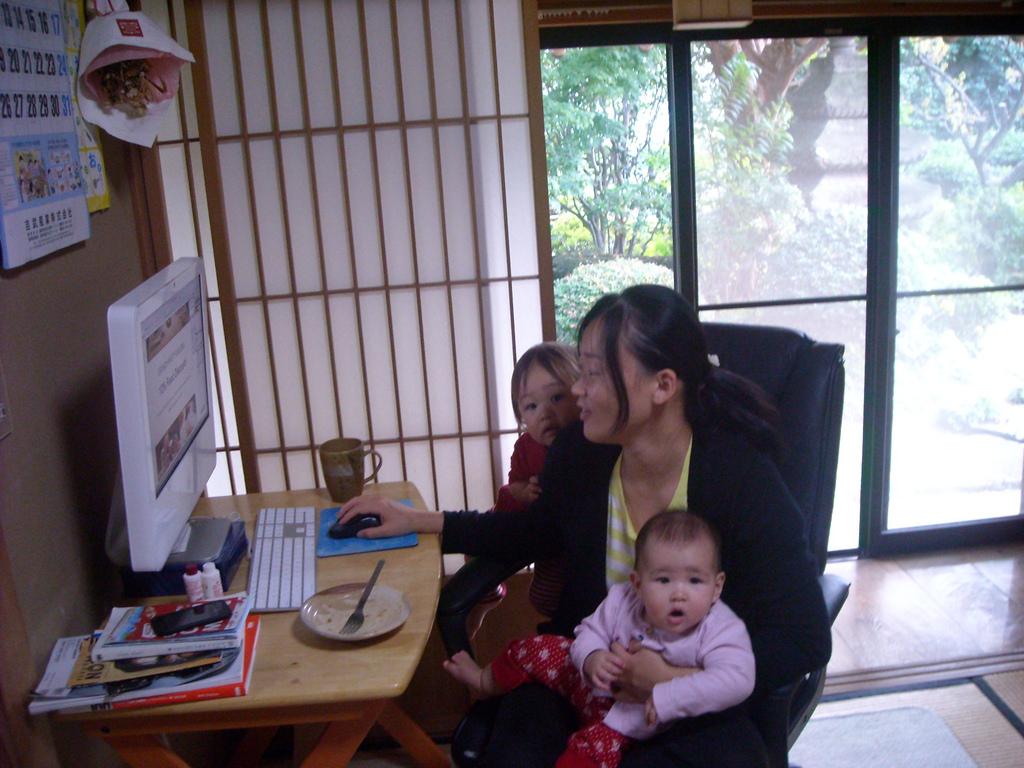
I’ve been sitting on a Brookings paper that argues that we need to take a break from worrying about male labor-force drop-outs, and worry instead about women who are not working:
In recent years, there has been a reduction in paid work among U.S. women, one that is not paralleled in other advanced nations. Getting more women into the labor market is perhaps an even higher priority than raising male employment rates.
This is important, the authors write, because nonworking women have, on average, greater skill levels than out-of-workforce men, so that getting them in the workforce would be a bigger boost to the economy, and because getting more women working would be a remedy for child poverty in a way that nonworking men wouldn’t be, especially when it comes to unemployed single mothers.
But all such discussions about getting women into the workplace seem to end up promoting greater subsidies for daycare, with an assumption that they need financial incentives, or other nudges, to go back to work full-time after their children are born. Remember when President Obama said, of women staying at home with their children, “that’s not a choice we want Americans to make“?
And at the same time, women themselves voice a preference, in polls and in behavior, for part-time work. As of 2012 (the most recent polling available), 47% of mothers prefer this, compared to 32% of moms preferring full-time work, and 20% preferring no work at all. And given that the actual workforce statistics consist of 16% part-time, 51% full-time, and 30% not working (plus 3% unemployed), this suggests that some women working full time, and other women working not at all, would prefer part-time work. And, indeed, City Journal had an article that came across my twitter feed today suggesting that our economy is losing a lot of productive capacity because educated, intelligent women want to work part-time but cannot find meaningful work, so they end up selling leggings and essential oils instead.
Now, when my children are small, I knew that I did not want them to be in daycare for more of their waking hours than they were in the care of my husband or I. I just couldn’t how a child could bond with his parents without being directly cared for by those parents — and, besides, trying to manage all of the things necessary for running a household (grocery, laundry, etc.) on Saturday and Sunday, seemed a bit much. So I worked part-time, and for part of those years, my husband flexed his schedule as well, and we paid for part-time daycare, even though it was plenty irritating that part-time daycare is only marginally cheaper than full-time (which is understandable, and not an injustice on the daycare center’s part, because it’s proportionately more expensive to have a part-time child).
Would these women who sell essential oils, or take surveys for profit, or tutor online, or try to earn some income on a freelance basis while their children nap or before they wake up, be OK with a traditional daycare arrangement, if the payoff were a “real” job, worked half-time? And would this be a strategy that could bring together diverse think tankians, in contrast to the current disputes about whether women should be given child benefits as stay-at-home parents, or be dragged kicking-and-screaming into the workforce?
But how could we get from here to there? There are real reasons why employers are reluctant to offer white-collar jobs on a part-time basis. I feel very fortunate that I’ve been accommodated in the way that I have, and am also aware that I am paid less, proportionately, than colleagues with similar experience levels, because I don’t pull the overtime that they do. There are real costs to employers — fixed per-employee costs that don’t differ whether they work 20, 40 or 60 hours per week, everything from annual training and continuing education to workspace/technology costs, to team meetings, handover meetings for projects, and so on. And there’s a real difference, greater than just proportionate hours worked, between a 20 hour employee, and a “I’ll stay as long as it takes to get the job done” employee. I try to be both, now that the kids are old enough that I can log on after dinner, or stay at the computer even after they get home from school, when it’s a busy period, but I have also vented that our part-time-working, family-friendly Dutch colleagues shut down their computers and walked away even when it meant that we in the U.S. were about to blow a client deadline.
I don’t really have a good answer. The standard approach to many of these sorts of things is to say that the government should provide tax credits and incentives, but what, exactly? I can’t think of any particular government policy that could be undone in order to make employers more likely to offer part-time white-collar work, other than the creation of a tight labor market that inspires more employers to look harder for employees. Some countries have legislation that specifically says that employers must offer part-time work upon request, unless they can produce a good reason not to.
So all I really know is this: “Hey, policy-makers and think-tankians! This would be a really useful thing to figure out!”
Image from flickr: https://www.flickr.com/photos/26923422@N07/4068093834












